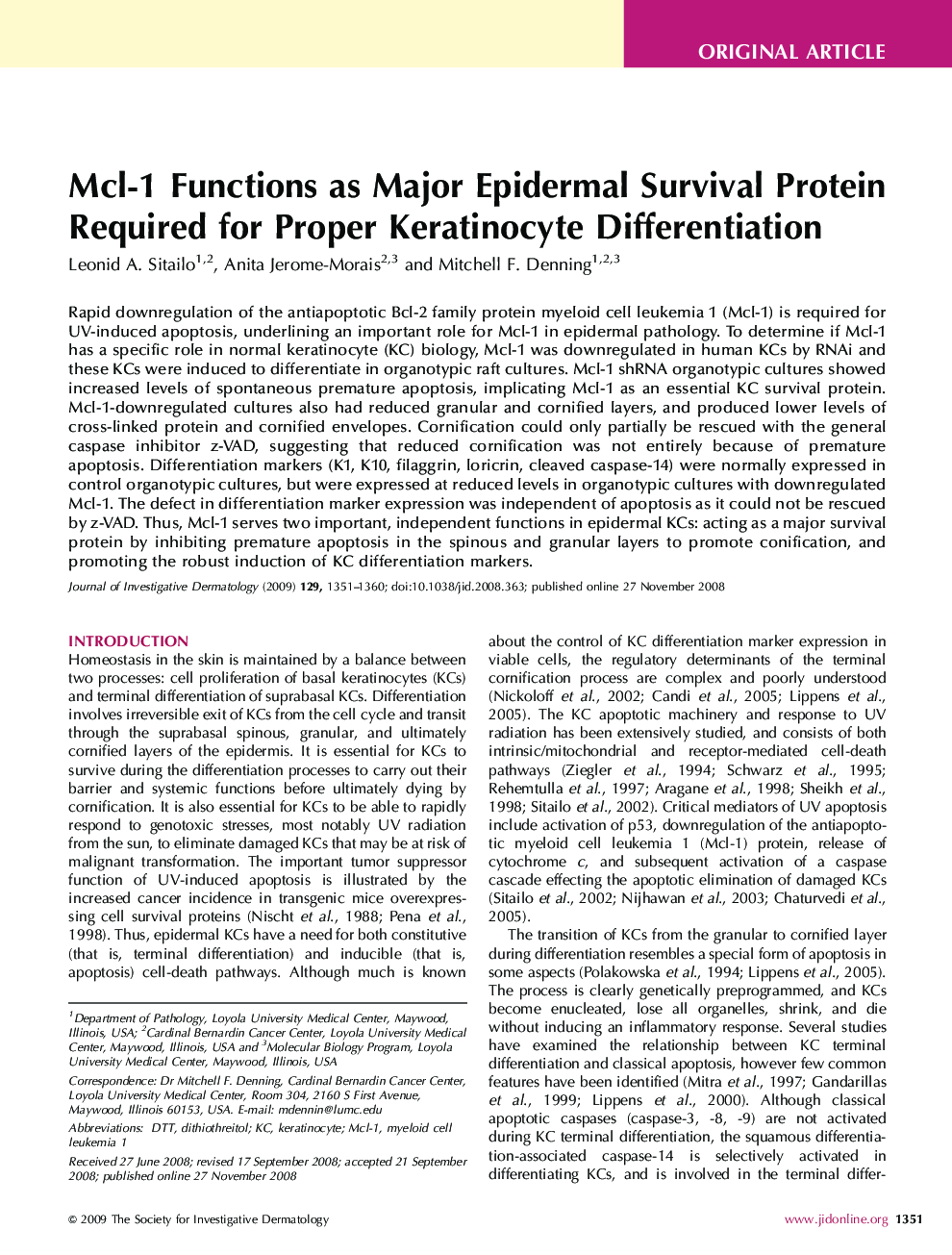| Article ID | Journal | Published Year | Pages | File Type |
|---|---|---|---|---|
| 3216458 | Journal of Investigative Dermatology | 2009 | 10 Pages |
Rapid downregulation of the antiapoptotic Bcl-2 family protein myeloid cell leukemia 1 (Mcl-1) is required for UV-induced apoptosis, underlining an important role for Mcl-1 in epidermal pathology. To determine if Mcl-1 has a specific role in normal keratinocyte (KC) biology, Mcl-1 was downregulated in human KCs by RNAi and these KCs were induced to differentiate in organotypic raft cultures. Mcl-1 shRNA organotypic cultures showed increased levels of spontaneous premature apoptosis, implicating Mcl-1 as an essential KC survival protein. Mcl-1-downregulated cultures also had reduced granular and cornified layers, and produced lower levels of cross-linked protein and cornified envelopes. Cornification could only partially be rescued with the general caspase inhibitor z-VAD, suggesting that reduced cornification was not entirely because of premature apoptosis. Differentiation markers (K1, K10, filaggrin, loricrin, cleaved caspase-14) were normally expressed in control organotypic cultures, but were expressed at reduced levels in organotypic cultures with downregulated Mcl-1. The defect in differentiation marker expression was independent of apoptosis as it could not be rescued by z-VAD. Thus, Mcl-1 serves two important, independent functions in epidermal KCs: acting as a major survival protein by inhibiting premature apoptosis in the spinous and granular layers to promote conification, and promoting the robust induction of KC differentiation markers.
